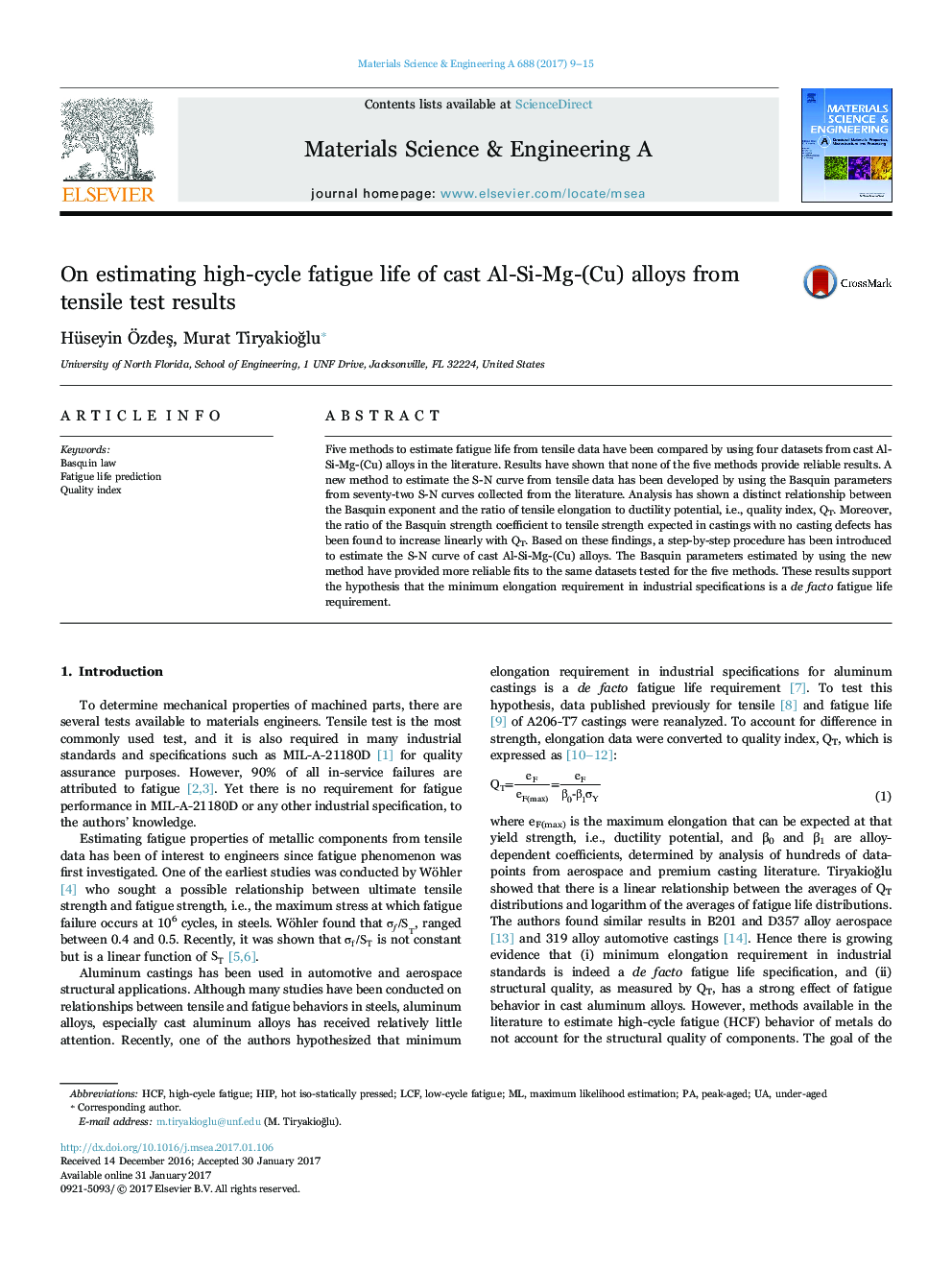| Article ID | Journal | Published Year | Pages | File Type |
|---|---|---|---|---|
| 5456170 | Materials Science and Engineering: A | 2017 | 7 Pages |
Abstract
Five methods to estimate fatigue life from tensile data have been compared by using four datasets from cast Al-Si-Mg-(Cu) alloys in the literature. Results have shown that none of the five methods provide reliable results. A new method to estimate the S-N curve from tensile data has been developed by using the Basquin parameters from seventy-two S-N curves collected from the literature. Analysis has shown a distinct relationship between the Basquin exponent and the ratio of tensile elongation to ductility potential, i.e., quality index, QT. Moreover, the ratio of the Basquin strength coefficient to tensile strength expected in castings with no casting defects has been found to increase linearly with QT. Based on these findings, a step-by-step procedure has been introduced to estimate the S-N curve of cast Al-Si-Mg-(Cu) alloys. The Basquin parameters estimated by using the new method have provided more reliable fits to the same datasets tested for the five methods. These results support the hypothesis that the minimum elongation requirement in industrial specifications is a de facto fatigue life requirement.
Keywords
Related Topics
Physical Sciences and Engineering
Materials Science
Materials Science (General)
Authors
Hüseyin ÃzdeÅ, Murat TiryakioÄlu,
